Audience comments from the Comprehensive Master Plan Advisory Committee (CMPAC) Meeting taken from this YouTube recording. (This article is not from the official minutes.)
The meeting date was May 10, 2019, and the committee members in attendance were, ” Chairman Keith Keck, Vice Chairman Nikki Choyce, Patricia McCarthy, Jody Latham (President of Cooper Land Development), Murray Claasen, Pam Avila, Clint Blackman III, Rolland White, and Tom Heau. Also in attendance were Buddy Dixon, Board of Director Liaison and Stephanie Heffer, Staff Liaison (HSVPOA Director of Placemaking and Development).
Jack Reeder Comments
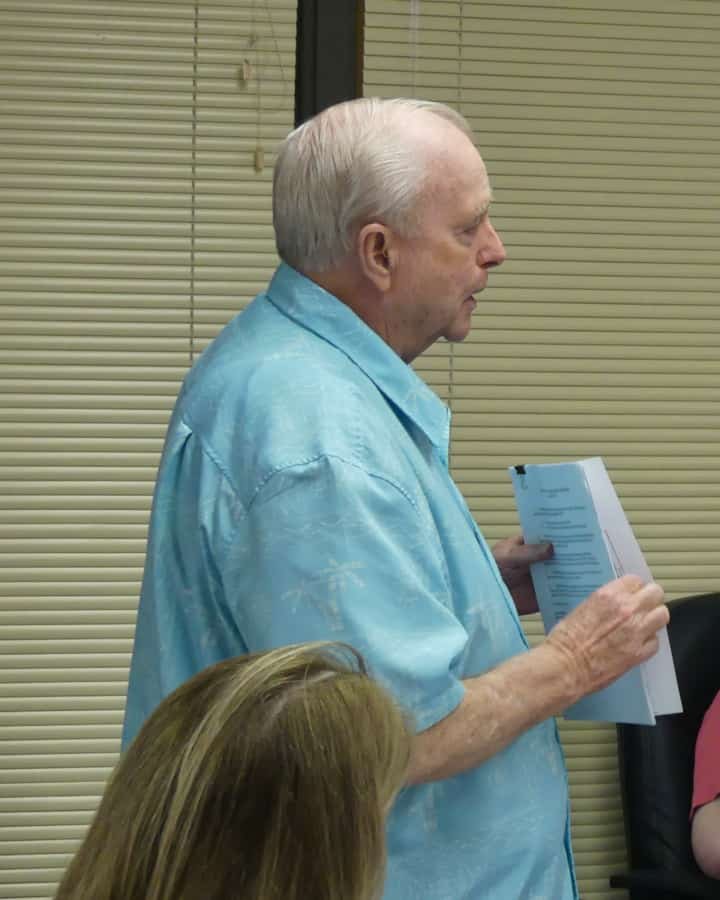
Jack Reeder of the Architectural Control Committee (ACC) wants the Comprehensive Master Plan Advisory Committee (CMPAC) to consider using Critical Path Method Management Scheduling. It would be beneficial in order to help with tracking the 271 recommendations. This is an inexpensive and powerful method of keeping track of activities and organization.
Linda Anderson Comments
Linda Anderson said, “One thought here. I know there are a lot of questions on understanding where this committee is going and so many variables. But the one thing I didn’t understand is why would a marketing committee have to be connected with you when in reality, the marketing, itself, could move right ahead and not be controlled by this committee or any relation to it. I don’t understand that.”
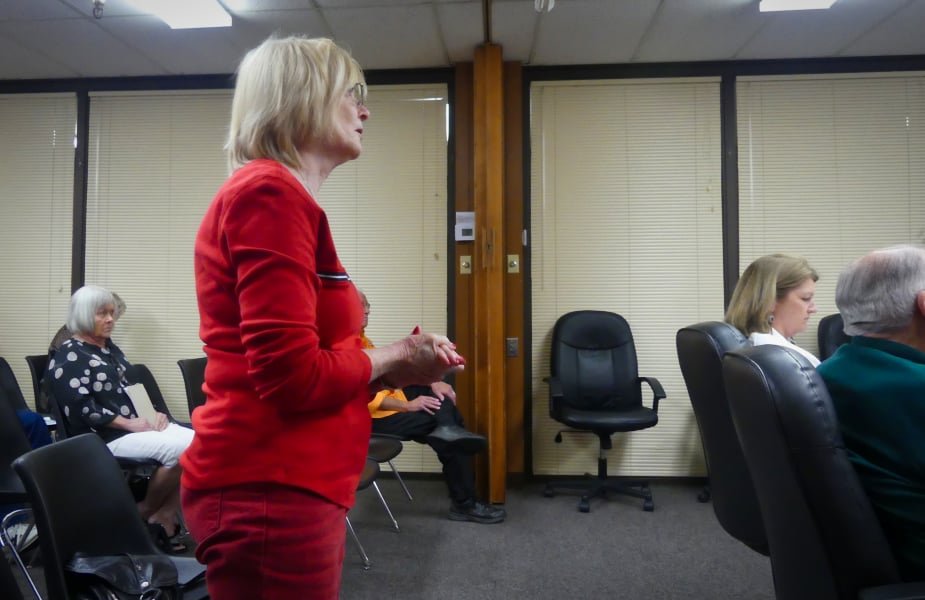
Keith Keck, CMPAC Chairman, said, “first thing off is that in the CMP, it made some specific recommendations about marketing. What we found, looking at those recommendations is that falls under our charter.”
Keck: “We’ve been asked to look at that as well, to stand up.”
Keck further explained, “what Pam’s effort comes up with may be, we’ve given her the strategy task. Maybe somewhere down the road, this may change. This is the task we’ve received from the Board and we will march out on our task. That is why we are doing it under our auspices right now is because it does actually fit under us. But if somewhere down the road, changes are made, we deal with the changes. I will use, just as an example, Budget and Finance. There are recommendations. This committee now will be grading the Budget and Finance Committee in reality. There are recommendations we will look at in this big 271 number and say, ‘here’s where they moved along in budget and finance’. We won’t be actually having a subcommittee to work budget and finance.”
Committee Member, Tom Heau, clarified, “I am going to focus on one word that you used. ‘Control.’ I am envisioning, a subcommittee is supposed to do the same thing we are. We advise. So I don’t think the purpose of this subcommittee is going to be to control anything. Maybe I am just parsing words. Maybe you did not intend to use it.” (It meaning the word control.)
Keck said, “you hit it on the head there Tom. We provide our best advise to whoever we are supposed to advise. It goes back to the three-legged stool. Just as we are providing advice to the Board and the staff, we are informing, really it is advising, the Property Owners, too.”
Committee Member, Clint Blackman III, said, “first of all, thank you for coming forward. One of the problems, I have researched some of this, one of the problems is we can have a fantastic marketing program that literally brings in a hundred thousand people. We don’t have a place to put them. We don’t have enough hotel rooms. That is what the committee is here to help with is how do we get this together. Thanks for coming and we’re working on it.”
Anderson said, “and I appreciate everybody here. It takes a lot of thinking in your mind to bring up all the alternatives and I really appreciate that from everybody.”
Anderson: “one of the things also that caught my attention was Jody” (Jody Latham, President of Cooper Land Development) “and her understanding that she is here on behalf of Mr. Cooper. In that respect, it is the legal ramifications that in going forward, I think she has a good understanding and I hope that everybody understands that too. Because, if you get into the plan itself and all of a sudden, we go, uh, we can’t go there. We can’t recode the Village. We can’t do all these things. It has been understood that there’s a New Urbanism plan, so to speak underfoot. I don’t know if you all know where the Comprehensive Master Plan did come from, but it’s out there and there is a lot of people that have understood that and maybe we are informed or misinformed, but it’s there. So, from a legal standpoint I think that Jody has come and presented a good case for when you get down the line, please remember that there are certain things to think about.”
Keck responded, “and Linda, there’s a lot of stuff in that plan. You kind of jumped, you said the ‘New Urbanism’ word and that goes back to a very small segment of all this other stuff.”
Director of Placemaking and Development, Stephanie Heffer interjected, “That goes back to education.”
Keck continued, “That goes back to education. That is what I hope to do and that is why we allowed it to be videotaped. We’re trying to be open. Folks, there’s a lot of other good things that we need to start moving on.”
Anderson stated, “you mentioned a lot of good things.”
Keck said, “That’s what we are trying to do. We are a brand-new committee. This is our first real meeting.”
Jokingly Keck said, “we’ll have everything done by next meeting and …” (Audience laughs)
Anderson: “Thank you for letting us stand and speak. We appreciate that.”
Ron Tetu Comments
Tetu: “I’d like to comment.”
Keck: “Hi Ron.”
Tetu: “My comment ties in with the Critical Path suggestion. What you have to do is, you technically picture, you flowchart this whole thing. Here’s where we are, the start. You have to define your end goal. You haven’t really discussed that at all. What is our end goal?”
Blackman: “Your name sir?” (Ron Tetu states his name.)
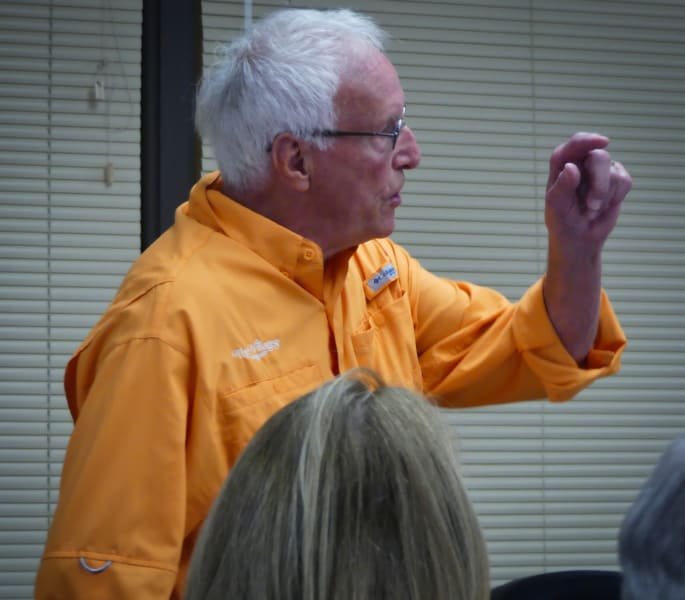
Tetu: “Now the 271 points that you talked about, Keith, they are steps to get to that end goal. When the gentleman talks about Critical Path, this is deciding what has to be done first and then second and then third to get to that end goal.”
Tetu: “All these other points, say 271, all play a part to get from here to there. But you do have to define your end goal, first. So you all know why you are here.”
McCarthy (undecipherable)
Keck: “That’s just one portion of our goal. (In response to McCarthy)
Keck: “Our end goal is a broad thing.”
White: “It’s a viable, self-sufficient community.”
Keck: “Yes. That’s the end. How do you define a ‘viable, self-sufficient community’? If we built this community out 50% we’d be busting at the gills. There’d be people complaining on DeSoto. It would be a four-lane on DeSoto, if not more than that.”
Keck: “Some of it goes back to our current goals, is to support the Enterprise Goals because that is what the Board has given as our direction. Our end goal is to support the Enterprise Goals and they are pretty home and apple pie type goals. Our current goal is to support what the Board has told us, our Enterprise Goals.”
Tetu: “Does everybody know what those are?”
Keck: “That is a hard…education.”
Tetu: “We really have to define what is our end goal. And then all of the other steps lead up to that end goal.”
Marcy Mermel Comments
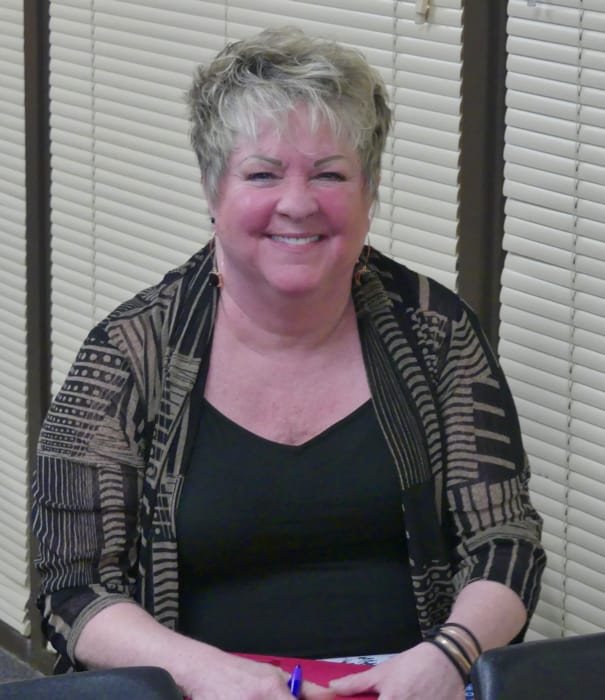
Marcy Mermel: “Hi. Marcy Mermel. Just asking a question. Currently, on the Board, they are discussing creating a Finance Committee and a Marketing Committee. Is that or is that not a duplication of services? Also, what’s going to happen if they are able to create those committees? How are we going to be able to coordinate that because you’re having a Finance Committee, they’re having a Finance Committee.”
Keck: “Here’s Keith Keck’s take on it. Buddy, you can correct me if I am wrong.”
Mermel: “Thank you.”
Keck: “The Board will, has or will, create a Finance Committee. That’s an agreed upon Board activity.”
Dixon: “Charter has been written.”
Keck: “Charter has been written. We still have the Revenue/Growth portion of it because it’s different. When you go into the plan, there’s some budget and finance type of things. And then there are some Revenue/Growth. So, we will still own Revenue/Growth. That’s where I kind of look at Tom here as our budget guy, our numbers guy to potentially be on Revenue/Growth.”
Keck: “Okay, let’s go back and look at marketing. On the Board there are different opinions on marketing. Right now the Board has given us the task to work the marketing as a subcommittee here. If we receive different direction from the Board, we will do what we need to do. If it’s handed off to a marketing committee under the Board, then so be it. Pam Avila may go and be part of that, too. I don’t know. But today, at this point on May 10 at 15:05 or whatever, we are moving forward with a subcommittee and we will march to the direction of the POA Board and the 7 members there.”
Mermel: “Okay, thank you.”
Bruce Caverly Comments
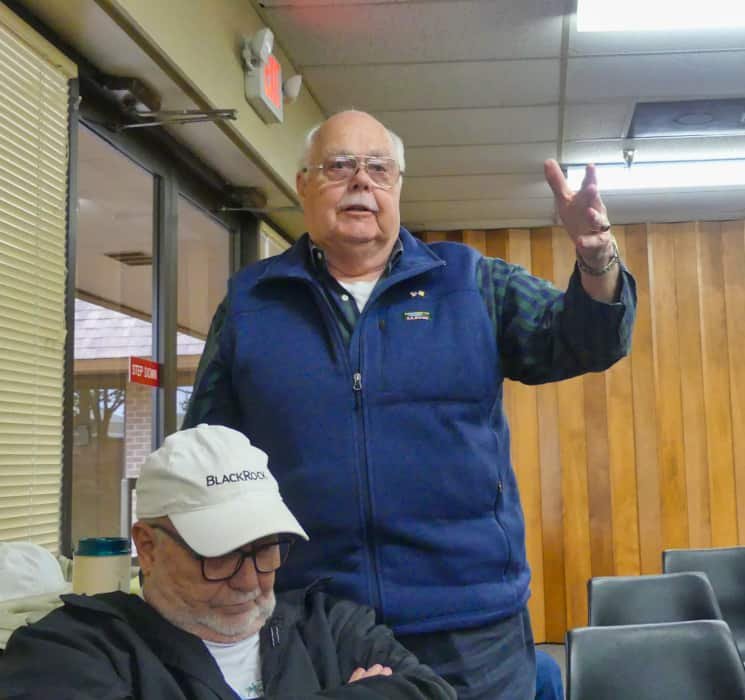
Caverly: “I will get with Pam on marketing. You spent a lot of time on marketing and talked about strategies. There’s a whole lot of things that come before strategies and those things that come after. I spent 35 years at 3M doing International Business Development and Marketing. I will give her some help, wherever she wants it.”
Avila: “Thank you.”
Next meeting is June 14, 2019
Keck asks if there are more questions. There were none and Keck thanks folks for attending. The next meeting will be June 14, 2019, at 1 p.m. (second Friday) at the Coronado Center – Room 3.
Transcribed, written & formatted by Cheryl Dowden
Photography by Joe Dowden
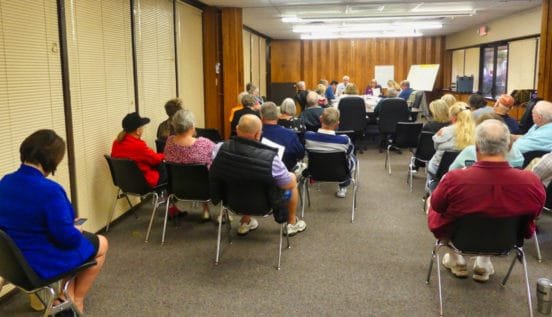



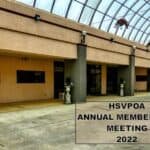






Kirk Denger
05/18/2019 — 10:37 pm
I have some numbers: 271, 9 and Ten and a half million. Does anyone have any idea of what these numbers are? 271, 9 and 10.5 million. These are the numbers of the Comprehension of the Master Plan. 271 recommendations made by the Congress of New Urbanism of how we should change our lifestyle to comply with their concept of how life should be lived according to their perspective. The number 9 is the number of days that these consultants spent on their in-depth comprehensive study of our Village. 10.5 million is the number of dollars spent to date and continually spending on this CEO plan that has brought not one productive asset to our Village. Are we all going to just sit here and allow our Congress of New Urbanism affiliated CEO to dictate how our elected Board of Directors should think? The 1963 Arkansas Non-Profit Articles of Incorporation calls for a President and Vice President of a corporation, not a chair and vice chair. It only takes two Board members to put the CEO on administrative leave for overstepping the contract of the CEO. The charades of inventing new committees to cement the CNU’s CMP is causing nothing but more clean-up work for us after it is gone. Thirteen amendments to cement the CMP were legally voted against by the overwhelming majority of the HS Villagers last November. Why is this failed plan still being promoted by our management? Please put an end to this madness and return our Village to us.